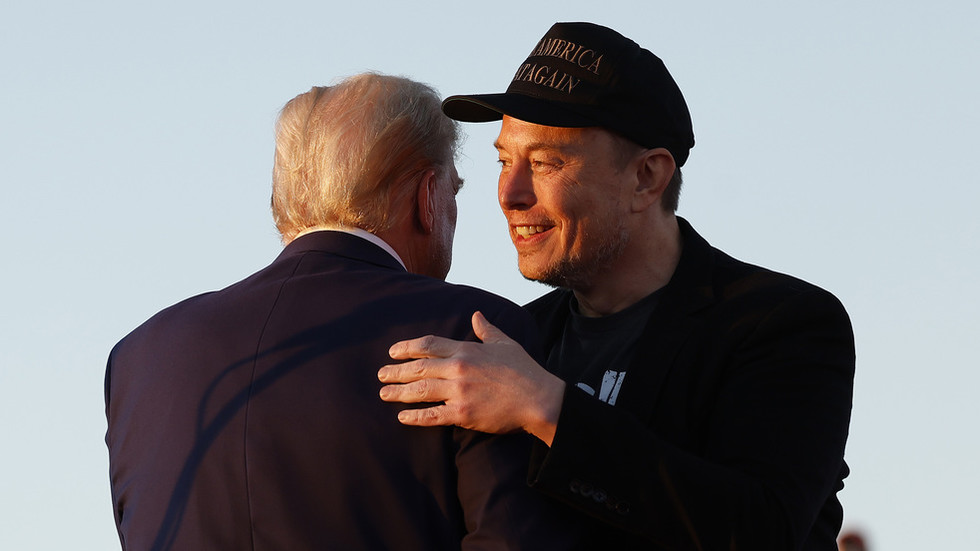In a recent appearance on Fox News, former President Donald Trump, who is currently running for the Republican nomination, revealed a bold new plan that involves tech mogul Elon Musk. Trump announced his intention to create a position in his administration that he referred to as the “secretary of cost-cutting,” a role he envisions specifically for Musk, the CEO of Tesla and SpaceX. Praising Musk’s entrepreneurial acumen, Trump highlighted the billionaire’s skills as an efficient cost-cutter and a highly innovative leader within the tech industry. He made specific mention of Musk’s contributions to space technology, showcasing Musk’s dedication and prowess in developing complex engineering solutions, such as advanced materials used in aerospace applications.
Trump underscored Musk’s ambitions in space, revealing that Musk had made impressive commitments to him regarding space exploration. The former president recalled Musk’s promise to achieve a Mars mission before the conclusion of his next administration, emphasizing a sense of urgency and competitive spirit to outpace both China and Russia in the race for interplanetary exploration. This mutual respect and admiration between Trump and Musk set the stage for a proposed partnership that reflects their shared interests in innovation, technology, and the future of American space endeavors. The prospect of Musk serving in a high-profile governmental role could signal a significant shift in the relationship between Silicon Valley and Washington.
Furthermore, Trump took the opportunity to highlight Musk’s vocal support for his campaign, recounting Musk’s surprise appearance during a campaign rally in Butler, Pennsylvania. Here, Musk engaged the audience by describing the upcoming election as “the most important election of our lifetime,” a statement aimed at galvanizing voters around Trump’s platform. Musk’s advocacy for Trump encompasses broader themes like personal freedoms, with particular emphasis on freedom of speech—a crucial topic in the current political discourse. This public backing from such a prominent billionaire may provide Trump with an edge, rallying the tech and business community to his side as he seeks electoral success.
Adding another layer to this political and business dynamic, Musk also expressed his discontent with other wealthy individuals who have pledged support to Kamala Harris, the Democratic candidate and current Vice President. In doing so, he implied that these billionaires may be motivated by fear of Trump’s potential return to power, referencing their possible connections to the controversial figure Jeffrey Epstein. This commentary adds a provocative layer to the narrative and suggests Musk’s willingness to engage in a culture of political polarization, aligning himself firmly with the Republican side amidst concerns about accountability and transparency among elite circles.
Trump’s remarks about making Epstein’s alleged “black book” public, should he win, also hint at a penchant for sensationalism that characterizes his political persona. By intertwining Musk’s innovative reputation with the exploration of controversial topics such as Epstein’s connections, Trump sets a high-stakes backdrop for his campaign. This strategy aims to captivate voters by invoking notions of accountability while prompting an emotional response from a base that resonates with conspiracy theories and distrust of political elites.
Overall, the prospect of Elon Musk taking on a pivotal role in a potential Trump administration speaks to an intriguing intersection of business innovation and political ambition. Through the proposed role of secretary of cost-cutting, coupled with Musk’s bold space aspirations and his candid stance on freedom of speech, Trump seeks to revitalize his campaign while leveraging Musk’s significant influence in technology and business. This collaboration represents a vision for an American future that emphasizes leadership in both fiscal responsibility and space exploration, a narrative that could play a critical role as the November elections approach.
In conclusion, Trump’s unfolding narrative entwines personal chemistry with Musk’s progressive vision for technology and space. As both figures stand at the crossroad of business and politics, their alliance might fundamentally reshape perspectives on governance, innovation, and global competitiveness. Whether this partnership will bear fruit in the form of tangible policy changes or electoral success remains to be seen, but it undoubtedly marks a significant moment in the ongoing dialogue about the role of billionaires in politics and the broader implications for American society.

